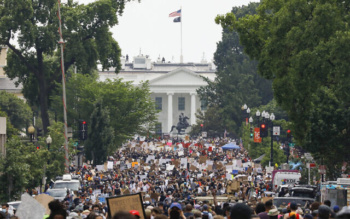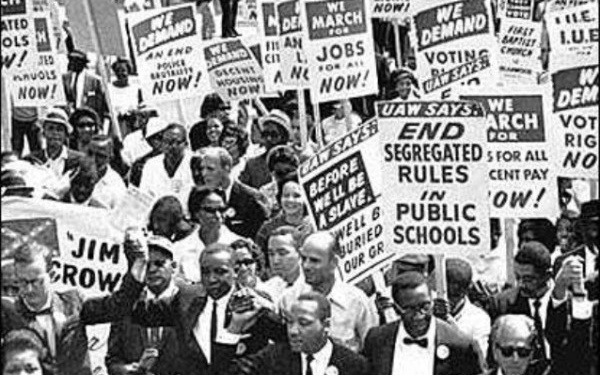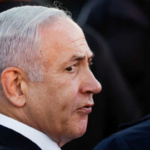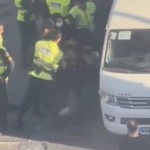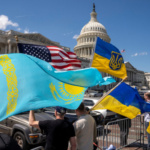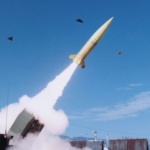The Birmingham, Alabama campaign for civil rights in 1963
Written for America Unfiltered, the joint project of EA WorldView and The Clinton Institute, University College Dublin:
During the Montgomery Bus Boycott in 1956 police harassed and arrested those who walked peacefully and with dignity in lieu of riding segregated buses. Employers fired boycott participants. Alabama banned the NAACP. Shots were fired, bombs were planted.
The boycotters were told they were not protesting the right way.
During the 1963 Birmingham Campaign peaceful protesters, including children, marched for civil rights in a city that had come to be known as “Bombingham” because of its violence against its black citizens. Bull Connor, the “Commissioner of Public Safety”, unleashed firehoses, German Shepherds, and clubs on marchers. More bombs exploded. That September one of those bombs, planted by the KKK, killed four little girls in the 16th Street Baptist Church.
Those little girls, their parents and friends, were told they were not protesting the right way.
During Freedom Summer in 1964, black and white Mississippians worked together to register voters and to form a truly representative organization, the Mississippi Freedom Democratic Party. Three activists, a local black Mississippi native and two white northerners, were murdered. Volunteers were harassed and beaten, locals who interacted with the volunteers were threatened, fired, and worse.
Freedom Summer volunteers were told they were not protesting the right way.
In 1965, citizens and allies in Selma, Alabama continued the quest for the vote but also for broader civil rights. They faced abuse, violence, and harassment. As they commenced the Selma to Montgomery March, they were brutally beaten by local and state police. At a February protest, an Alabama State Trooper murdered Jimmie Lee Jackson, a local activist. In March, KKK members murdered Reverend James Reeb of Boston in one incident and Viola Liuzzo, a mother of five from Detroit, in another.
The dead and the beaten were told they were not protesting the right way.
In October 1966, Huey P. Newton and Bobby Seale formed the Black Panther Party for Self Defense in Oakland, California. The organization particularly focused on police brutality, and carried weapons while engaging in “Cop watch” activities. In April 1967. Ronald Reagan signed the Mulford Act, introduced by a Republican Assemblyman with the full backing of the National Rifle Association. The act repealed open carry and severely restricted firearms possession. On May 2 the Black Panthers brought guns to the California State Capitol in Sacramento.
The Black Panthers were told that by carrying guns in the streets and in government buildings they were not protesting the right way.
By 1968 Martin Luther King Jr. had expanded his focus from civil rights to a whole range of issues of economic and social justice, which also included trenchant critiques of American foreign policy in Vietnam and beyond. In Memphis King marched with sanitation workers who were on strike against longstanding abuse.
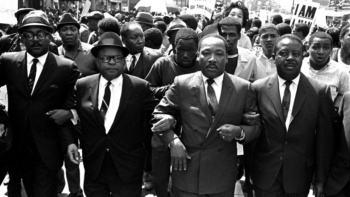
King and the sanitation workers were told they were not protesting the right way. The declaration was punctuated with an assassin’s bullet on the balcony of the Lorraine Motel on April 4.
“The Language of the Unheard”
Fast forward to 2016. Colin Kaepernick, quarterback for the San Francisco 49ers, knelt during the playing of the Star Spangled Banner, one verse of which is a paean to slavery. He knelt to protest police brutality, particularly widespread police killings of unarmed black men. Other players joined in, especially after Donald Trump in 2017 asserted that any protesting players should be fired. They faced racist vitriol. Kaepernick, despite a far superior record to a large number of NFL quarterbacks, never played in the league after the 2016 season. Instead he expanded his activism and charitable activity.
Colin Kaepernick was told and told and told – including by the President of the United States — that in peacefully kneeling to protest police violence against black Americans he was not protesting the right way.
The death in May 2020 of George Floyd, murdered by Minneapolis police for allegedly using a counterfeit $20 bill, was brutal but far from unique. There have followed a series of protests across the US, and in many parts of the world in solidarity, that have been a striking magnification of the Black Lives Matter movement.
Black Americans and their allies have been told again that they were protesting the wrong way when they did so peacefully. Sometimes they were admonished in the midst of protesting peacefully. They have been denounced as they marched in city after city, making voluble what Martin Luther King, Jr. called “the language of the unheard”.
